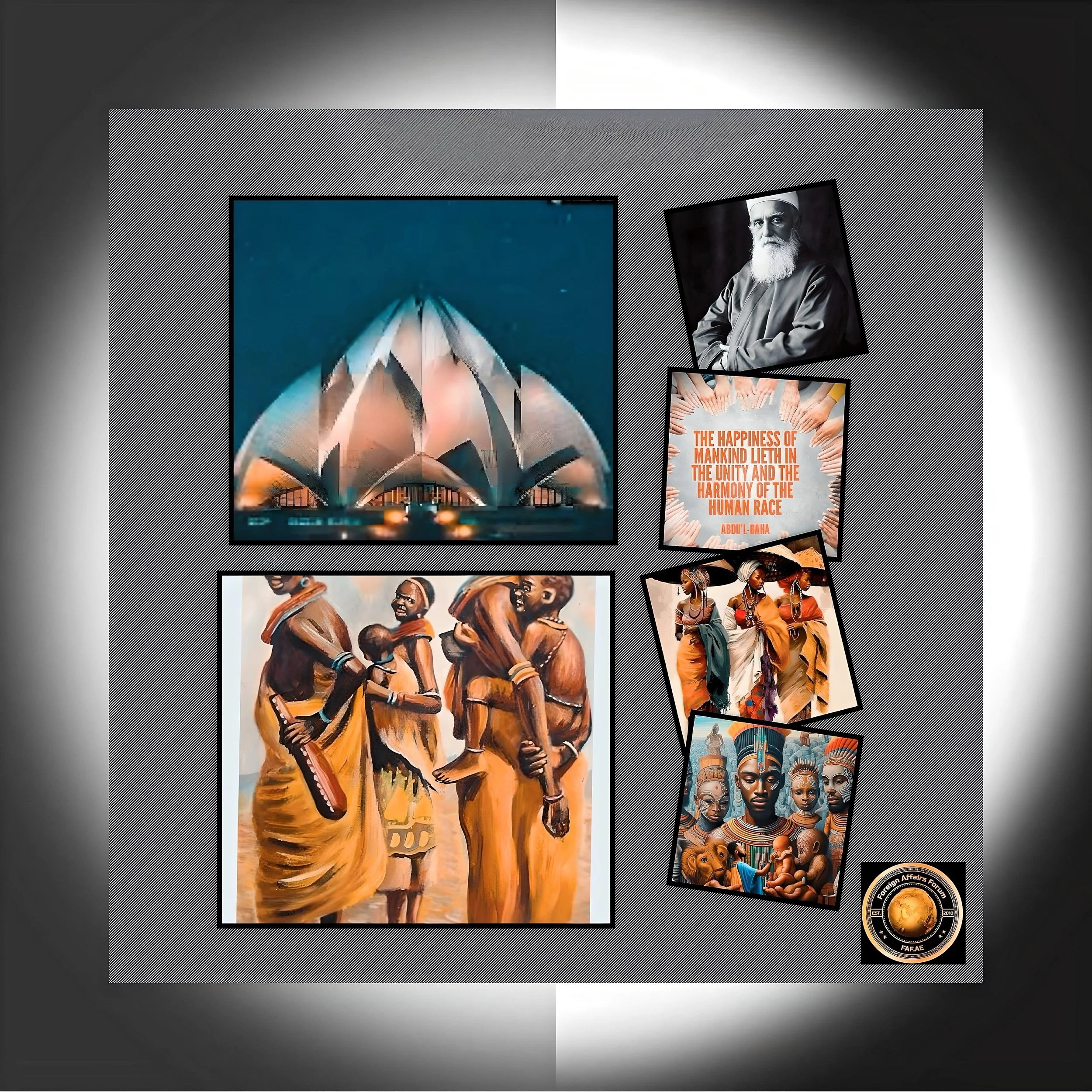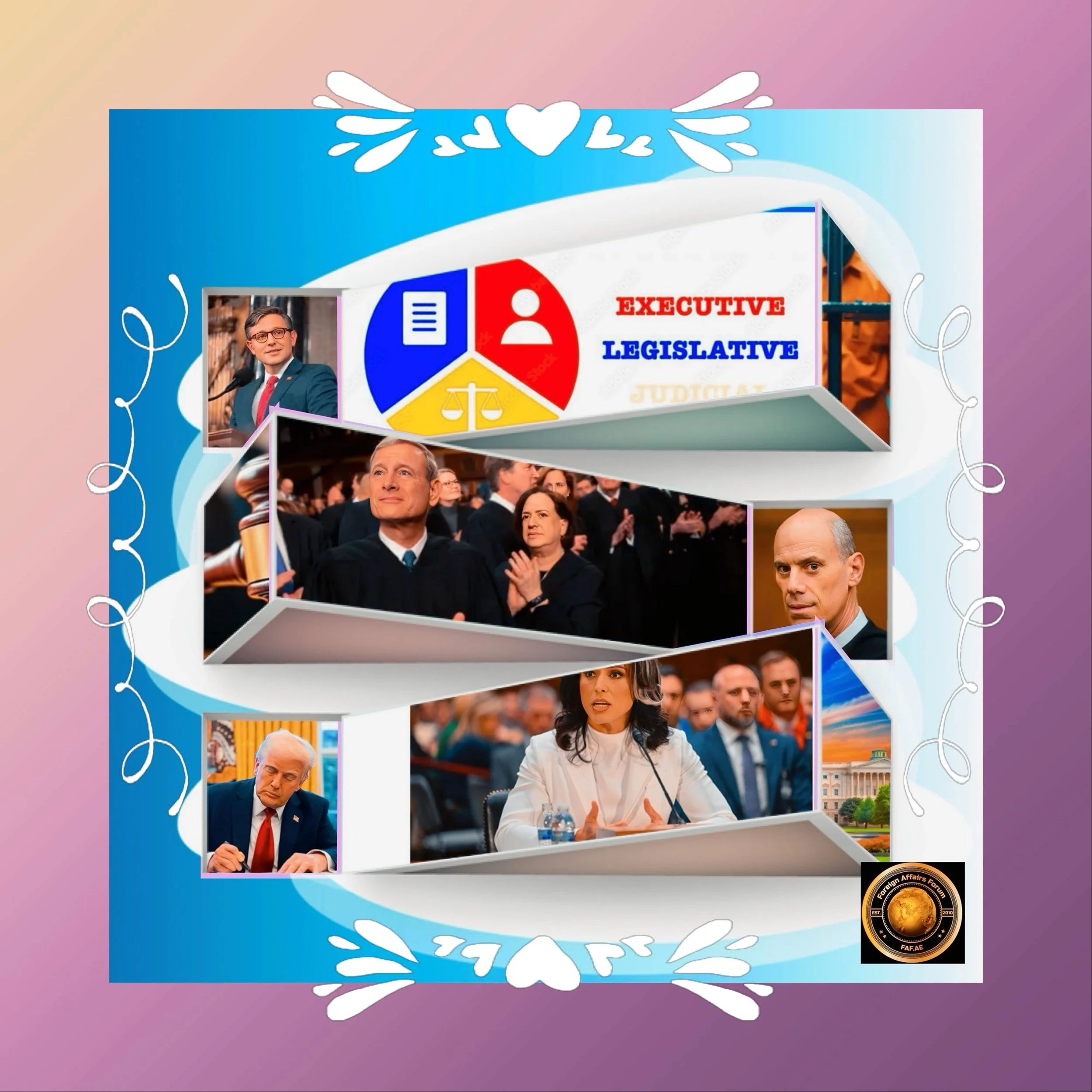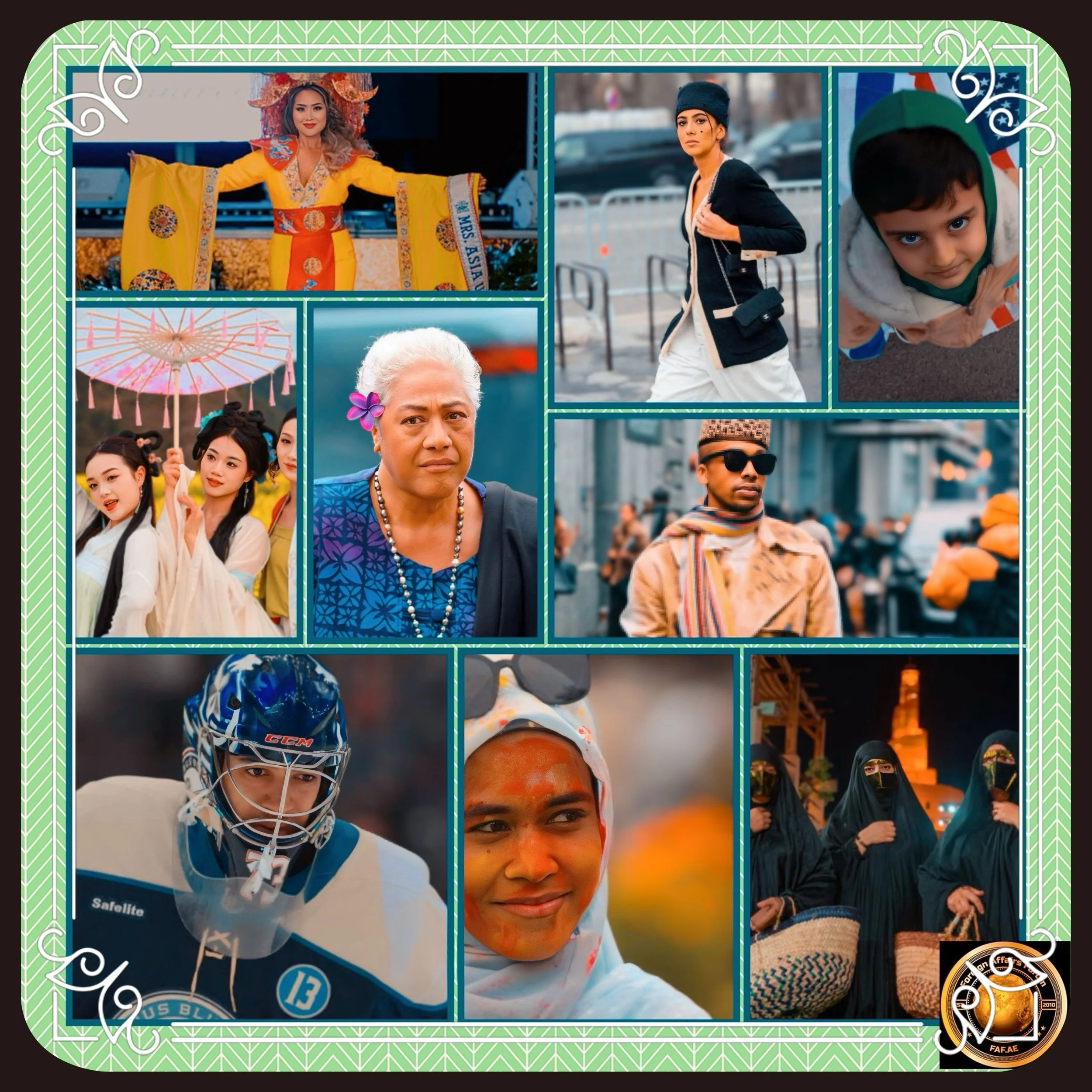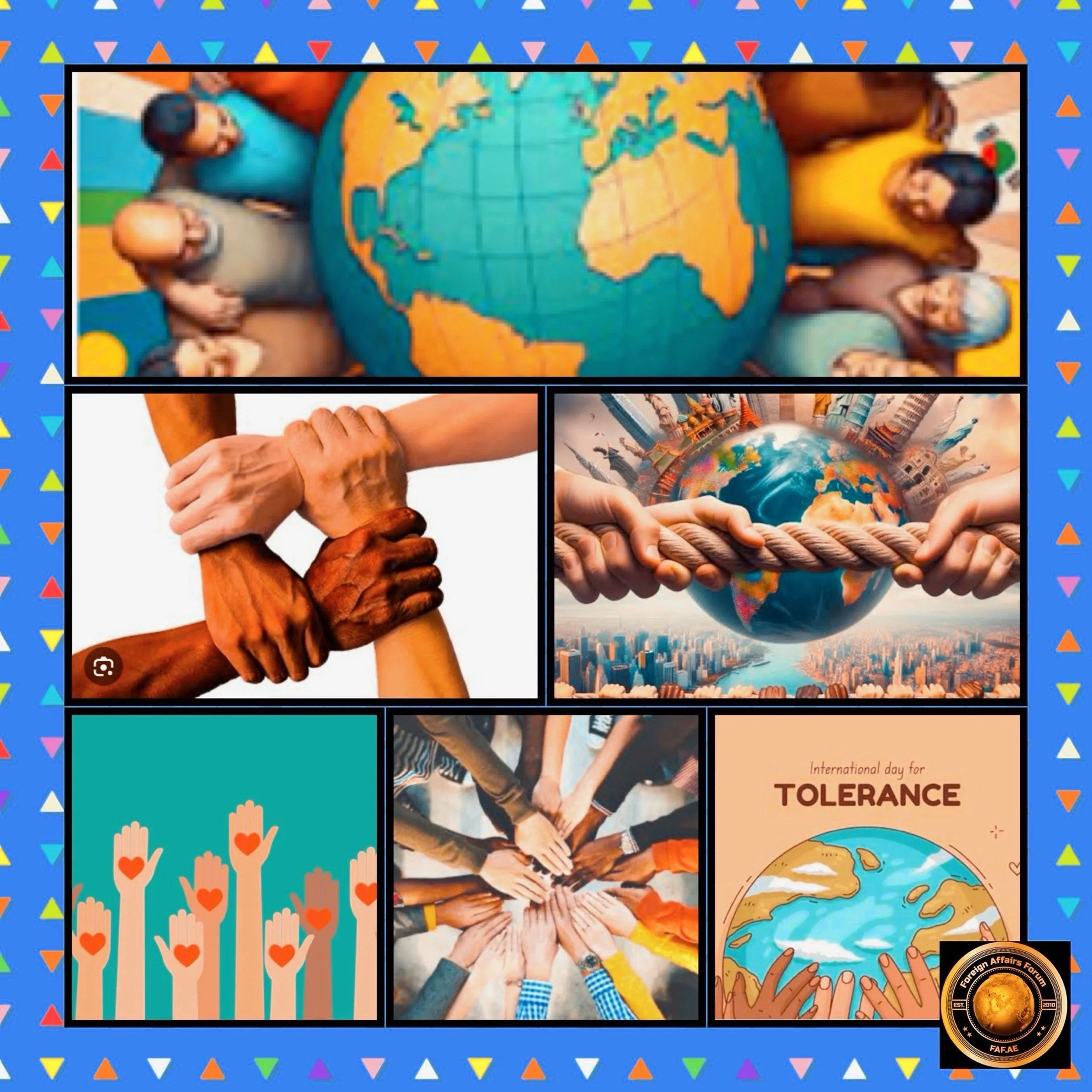The Paradox of Identity and Unity: Understanding African Cultural Identity in a Globalized World
Introduction
The quote, “Without your own cultural identity, you become anything that they tell you you are,” encapsulates a profound concern about self-definition and the power dynamics inherent in identity formation.
This statement, attributed to Mr. Imhotep, raises important questions about the relationship between cultural identity—mainly African—and the possibility of global unity in a post-colonial world.
The Quest for African Identity: Beyond Blame and Victimhood
The pursuit of African identity is often mischaracterized as merely a reaction to historical injustices or an exercise in blame.
It represents something much more fundamental—a search for authentic self-definition in a world where external narratives have long dominated.
African identity has distinctive characteristics that predate colonial contact. It is fundamentally characterized by “being with” as opposed to Western individualism and communalism as opposed to collectivism.
The African concept of self is deeply rooted in familyhood and community relationships, reflecting an ontology in which the individual exists in meaningful relation to others.
This communal orientation isn’t merely a political philosophy but reflects a deeper understanding of human existence where the “self” is realized through connection rather than isolation.
The push for reclaiming African identity isn’t simply about blaming imperialism but about restoring what was systematically dismantled. One scholar notes, “The crisis of African identity is a reality within the African historic existential situation frame.
This reality is one of the effects of circumstances of the slave trade and colonialism notable between the thirteenth and eighteenth centuries”.
The drive to reclaim this identity affirms humanity in the face of historical forces that attempted to deny it.
Colonial Legacy: Why History Still Matters
While slavery and colonization might seem like distant history to some, their psychological and structural impacts continue to shape contemporary realities.
Franz Fanon’s work demonstrates how “the juxtaposition of the black and white ‘races’ has resulted in a massive psycho-existential complex.”
This complex manifests as both an inferiority complex among the formerly colonized and a superiority complex among those from colonizing nations—psychological patterns that don’t simply disappear with the formal end of colonial rule.
The colonial experience was not merely political or economic but a comprehensive assault on African ways of being and knowing. As one source explains: “The entrenchment or institutionalization of supposed superior culture in place of African culture remains an aspect of the definition of colonialism.
The coercive nature of that phenomenon tended to prove stronger than possible Africa’s resistance to its content. “
This replacement of indigenous knowledge systems and values with foreign ones has lasting consequences that continue to shape how Africans view themselves and their place in the world.
Furthermore, many of the structural conditions created during colonialism persist. One scholar argues, “Even today, neo-colonialism and neo-imperialism still contribute to shaping the continent's social, political, and economic condition.”
The arbitrary borders drawn by European powers at the Berlin Conference of 1884-1885 continued to define African nation-states, often dividing ethnic groups and creating ongoing political challenges.
Cultural Identity and Global Unity: False Dichotomy or Necessary Tension?
Whether cultural identity facilitates or hinders global unity presents a false dichotomy.
Cultural identity and global unity need not be mutually exclusive—in fact, healthy cultural identity can be the foundation for meaningful global engagement.
The Pan-African vision articulated by leaders like Kwame Nkrumah was not about isolation but creating conditions for Africa to engage with the world on fair terms.
As Nkrumah stated, “the struggle against colonialism does not end with the attainment of national independence” but continues as “a new and more involved struggle for the right to conduct our own economic and social affairs…unhampered by crushing and humiliating neo-colonialist controls and interference”.
This vision sought unity not as an end but as a means to ensure Africa could participate equally in global affairs.
Contemporary scholarship on identity in Africa recognizes the complexity of multiple allegiances. “In an African context, identity models should leave room for multiple allegiances referring to multiple domains.”
This suggests that affirming African identity doesn’t necessitate rejecting global citizenship—rather, it enriches it by bringing diverse perspectives to the worldwide conversation.
The African understanding of religion offers insights into how cultural particularity can coexist with universal values. “Divine truth is beyond the reach of a single religious tradition.”
This perspective acknowledges that truth has multiple expressions, suggesting that global unity doesn’t require homogeneity but can emerge from respectful engagement across differences.
Paths Toward Transformation: Beyond Blame and Amnesia
Moving forward requires not dwelling on perpetual blame or erasing historical memory but instead engaging in honest assessment and constructive action. Several approaches emerge from the literature:
Decolonization of the Mind
Decolonization isn’t just about political independence but about psychological liberation. One scholar argues, “African philosophy ought to be instrumental in decolonizing the African mind.” This involves critically examining internalized colonial perspectives and recovering indigenous ways of knowing. It doesn’t mean rejecting all external influences but evaluating them with discernment rather than uncritical acceptance.
Reaffirming Indigenous Values While Engaging Modernity
The path forward isn’t about returning to a pre-colonial past but selectively drawing on traditional values to address contemporary challenges. One researcher notes that “subscription to the refinement of African traditional and cultural heritage in tandem with the dialectics of historical realities should constitute a meaningful affirmation of African identity.” This suggests a dynamic approach to tradition rather than static preservation.
Pan-African Cooperation for Development
Practical cooperation among African nations provides a pathway for affirming shared identity and addressing everyday challenges. Creating structures like the African Continental Free Trade Agreement represents efforts to translate cultural solidarity into economic development. However, critics note that “Africa’s Continental Free Trade Agreement (AFCFTA) would not help” unless broader structural issues are addressed.
Embracing Multiple Identities
Rather than forcing a choice between local, national, continental, or global identity, embracing the reality of multiple identities offers a more nuanced path.
“The prevailing acculturation models should reflect the continent’s cultural diversity, ethnic complexity, and sociopolitical reality.”
This approach acknowledges the complexity of human identity without demanding artificial choices.
Conclusion
Identity as Foundation for Genuine Unity
The search for African identity isn’t opposed to global unity but provides the authentic foundation from which meaningful unity can emerge.
True unity doesn’t erase differences but respects and celebrates them, allowing each culture to contribute its unique wisdom to our shared human experience.
Rather than seeing identity as divisive, we might recognize that imposed homogeneity creates deeper divisions by suppressing authentic self-expression.
One scholar observes, “Instead, responding in an African way to the realities of modernity enhances African identity.”
This suggests that the path to unity lies not in conformity but in bringing one’s authentic self to the global conversation.
The journey beyond colonial mentality requires neither permanent blame nor historical amnesia but an honest acknowledgment of the past and creative engagement with the present.
For Africans and people of African descent globally, reclaiming cultural identity isn’t about separation but healing—establishing the psychological and cultural wellness needed to fully participate in building a more equitable global community.
The fundamental question isn’t whether we can achieve unity despite our differences but create a unity rich enough to embrace those differences as essential parts of our shared human tapestry.






